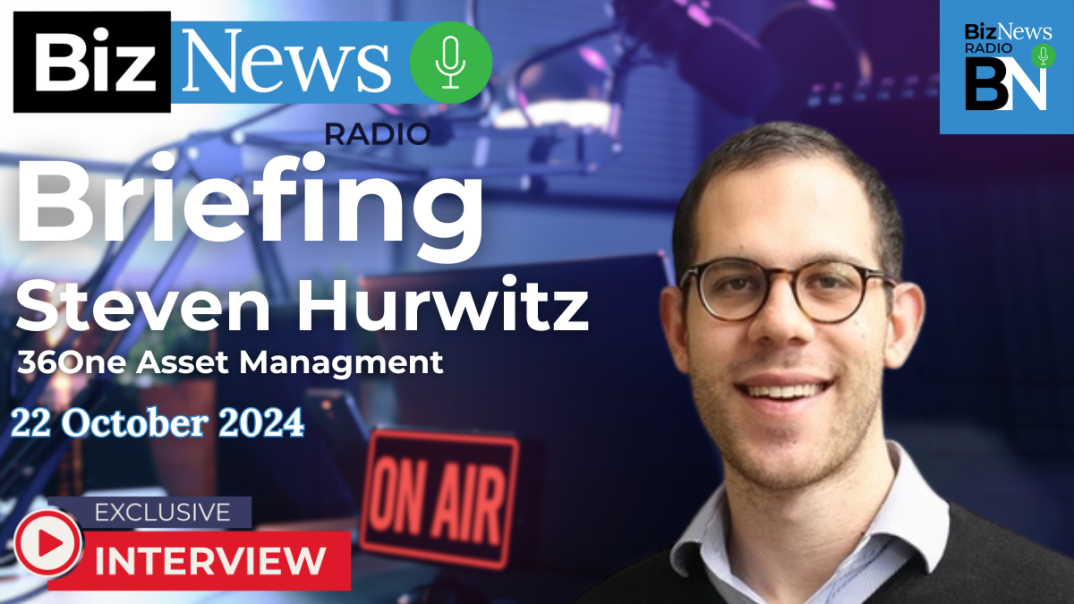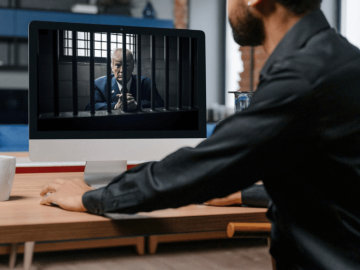In this morning’s episode of the BizNews Briefing podcast with Alec Hogg, Steven Hurwitz of 36One Asset Management weighs in on Naspers’ new CEO Fabricio Bloisi’s 100-day statement. While AI-driven innovations and improved profitability are promising, Hurwitz emphasizes that Naspers’ performance remains heavily dependent on its largest asset, Tencent.
Sign up for your early morning brew of the BizNews Insider to keep you up to speed with the content that matters. The newsletter will land in your inbox at 5:30am weekdays. Register here.
Listen to the interview with Peter Armitage here
Listen to the full BizNews Briefing podcast here
BizNews Reporter
In a recent interview with Alec Hogg on the BizNews Briefing podcast, Steven Hurwitz of 36One Asset Management discussed Naspers’ new CEO, Fabricio Bloisi, and the company’s current strategy. With Naspers and its subsidiary Prosus being key players in many South African portfolios, Bloisi’s 100-day statement provided insights into the company’s direction, including its ventures into artificial intelligence (AI), operational improvements, and challenges ahead.
A New Approach from Naspers
One of the standout points Hurwitz mentioned was the rarity of such a 100-day statement from a CEO. He acknowledged that Naspers had historically been less engaged with its shareholders, and Bloisi is seemingly trying to remedy this. The CEO is aiming for more transparency and communication, marking a shift from the past.
“Fabricio Bloisi, an entrepreneur, is stepping into the AI trend, much like companies did during the dot-com boom by adding ‘dot com’ to their names,” said Hurwitz. While AI is a major focus for many companies, it is not always clear how it impacts day-to-day operations. Hurwitz commented that many people struggle to understand AI’s tangible impact, but he noted that Naspers provided some concrete examples of how AI is being implemented at companies like OLX and Avito, reducing fraud and increasing operational efficiency.
These are real, incremental improvements that demonstrate how AI can help companies operate more efficiently. While Hurwitz doesn’t see this revolutionizing the businesses overnight, he believes that these technological advancements will improve margins and profitability over time.
The Influence of Tencent
Despite these positive moves, Naspers and Prosus’ fortunes remain deeply tied to Tencent, their most significant investment. Tencent alone contributes $120 billion of Naspers’ $150 billion net asset value (NAV). This overwhelming dependence means that no matter the innovations or AI enhancements at smaller portfolio companies, Naspers’ stock performance is primarily influenced by Tencent’s results.
Hurwitz highlighted this point when discussing the lukewarm market reaction to Bloisi’s statement, with Prosus shares dropping by 1%. “The majority of the value is still driven by Tencent,” Hurwitz explained. “While other aspects of the business are important, they’re not going to dictate the share price direction as Tencent does.”
He added that if Bloisi’s efforts to improve capital allocation succeed, Naspers might narrow its discount to NAV. Still, he remained realistic: the short-term outlook for Naspers and Prosus would be shaped by Tencent’s performance, especially given China’s ongoing macroeconomic challenges and geopolitical tensions.
A Trump Presidency?
Hurwitz also touched on potential geopolitical risks, including the possibility of Donald Trump being re-elected as U.S. president. “That would not be a bullish factor,” he stated, referring to how a Trump presidency could impact companies with significant exposure to China, such as Naspers and Tencent. Given the already fraught relationship between the U.S. and China, further deterioration could harm Naspers’ prospects.
Growth and Profitability in Sight?
Hurwitz expressed cautious optimism about Naspers’ outlook under Bloisi, particularly in terms of profitability. The CEO revealed that Naspers’ earnings before interest and taxes (EBIT) for the first half of the year were three times higher than the previous year, driven by improved operational efficiencies. However, Hurwitz added a note of caution: “It’s quite easy to triple profits when coming off a small base.” Naspers’ profits last year were just under $30 million, and they are targeting around $100 million for the first half of this year.
What excites investors more is the potential for Naspers to generate free cash flow. Hurwitz pointed out that historically, Naspers relied heavily on dividends from Tencent to reinvest in its portfolio, but now it seems that some of its other investments are beginning to pay off as well. “For the first time ever, the rest of the portfolio is also going to be contributing positively,” Hurwitz noted.
Takealot and the Challenge of Amazon
One of the key investments in Naspers’ portfolio is Takealot, South Africa’s largest e-commerce platform. Despite ongoing losses, Naspers remains committed to supporting the company, even in the face of competition from global giant Amazon, which recently entered the South African market. Hurwitz observed that while Amazon’s entry has been “underwhelming” so far, it’s never wise to underestimate such formidable competition.
However, the bigger issue for Takealot, according to Hurwitz, might not be Amazon but rather the rise of Chinese competitors, particularly through platforms like Tmall. These players present a cost advantage that could make it hard for Takealot to compete effectively. “It’s very difficult for them to compete with, especially on the cost side,” Hurwitz remarked.
BRICS, Geopolitics, and Global Investments
On a broader scale, Hurwitz addressed the growing influence of BRICS, especially with Iran’s recent induction into the group. He stressed that while geopolitics plays an increasingly important role in investment decisions, focusing on fundamentals remains key. “It’s easy to get caught up in geopolitical headlines, but the best way for investors to make money is still to focus on the bottom-up and company fundamentals,” Hurwitz advised. Good companies tend to thrive despite external disruptions.
Conclusion: A Wait-and-See Approach
Despite expressing optimism about Naspers’ long-term fundamentals, Hurwitz cautioned against buying the stock right now, especially given the uncertainties surrounding the U.S. presidential election. “I’d probably wait until we get some clarity on the U.S. election,” Hurwitz said, suggesting that a Trump victory might provide a better entry point for prospective investors.
Overall, Hurwitz believes that while Naspers is making some positive strides under Bloisi’s leadership, its fortunes remain inextricably linked to Tencent and global macroeconomic and geopolitical factors. Investors, therefore, need to remain vigilant and patient.
Read also:





